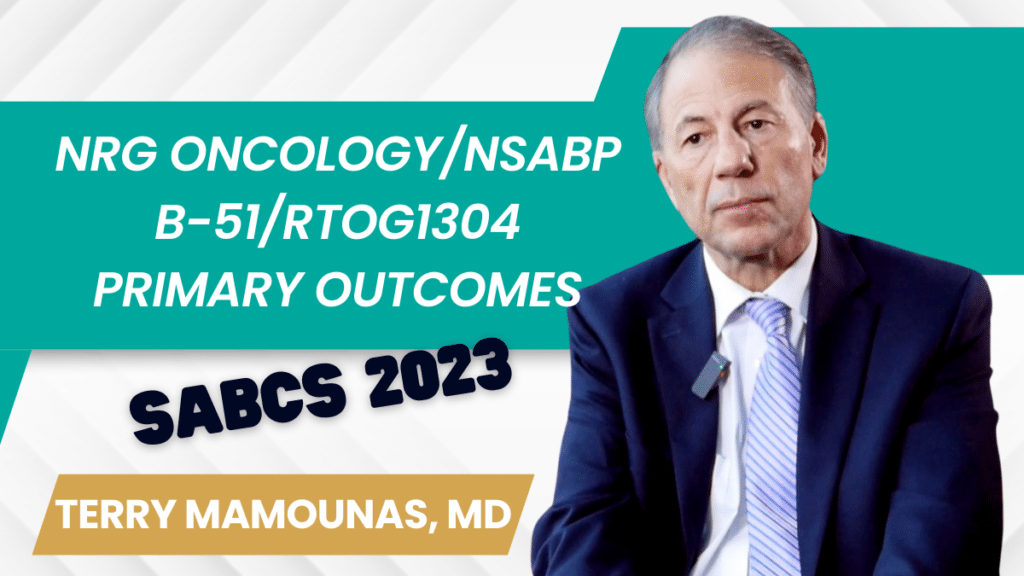By. Terry Mamounas
Date: 12/07/2023
In a collaborative study between NVP and RT, led by oncologist Terry Mamounas, MD, the NSABP B-51/RTOG 1304 trial aimed to assess the role of local-regional radiotherapy in patients with initially positive axillary nodes that turned negative after neoadjuvant chemotherapy.
The study objectives were to evaluate the necessity and potential benefits of local-regional radiotherapy in this specific patient population, focusing on the impact on invasive breast cancer recurrence-free interval (IBCF RFI). The study design incorporated a randomized comparison between patients receiving local-regional radiotherapy and those not, ensuring a thorough assessment of treatment effectiveness.
Patient characteristics and demographics in both groups were balanced to avoid confounding variables, providing a reliable basis for comparison and allowing for meaningful conclusions about the benefits of local-regional radiotherapy in patients with involved axillary nodes after neoadjuvant chemotherapy.
The primary endpoint, IBCF RFI, was chosen for its significance in assessing the efficacy of local-regional radiotherapy in preventing invasive breast cancer recurrence. This endpoint reflects the time interval free from such recurrences, offering a comprehensive measure of treatment success.
The subset analysis based on hormone receptor and HER2 status yielded findings. Triple-negative patients exhibited a potential detriment, while HER2-negative patients trended towards more benefit. These early subset analysis results suggest the need for further exploration and consideration in treatment planning for specific breast cancer subtypes. The study, spearheaded by Dr. Terry Mamounas, contributes insights to ongoing efforts to optimize treatment approaches and improve outcomes in breast cancer patients.

